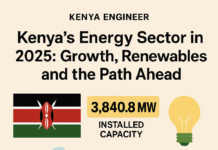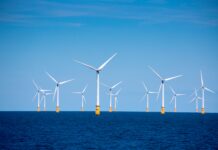
Last Updated 6 days ago by Kenya Engineer
As world leaders meet in New York for the 80th United Nations General Assembly, Kenya’s private sector has stepped onto the global stage with a strong call for deeper trade and investment partnerships with the United States. The Kenya Private Sector Alliance (KEPSA), led by CEO Carole Kariuki, spearheaded Kenya’s participation at the high-level Kenya–U.S. Investment Forum on September 22, advocating for the renewal of the African Growth and Opportunity Act (AGOA) and showcasing Kenya’s economic potential.
The event, co-hosted by KEPSA, the Corporate Council on Africa (CCA), the Kenya Investment Authority (KenInvest), and the Government of Kenya, brought together influential leaders from both nations’ business and policy circles. Notable delegates included KEPSA Chair Jas Bedi, Vice Chair Brenda Mbathi, and senior executives from Safaricom and KCB Bank.
Why AGOA Matters
At the center of discussions was the future of AGOA, the U.S. policy framework that has underpinned trade with Sub-Saharan Africa since 2000. Over the last 25 years, AGOA has been a critical enabler of industrial growth in Kenya.
-
Kenya’s gains: In 2024 alone, Kenya exported $470 million worth of apparel to the U.S., sustaining 66,800 direct jobs, three-quarters held by women. Nearly 800,000 livelihoods are tied to AGOA benefits.
-
U.S. gains: American consumers save $200–250 million annually through affordable imports, while U.S. industries benefit from diversified supply chains, jobs in logistics and retail, and enhanced geopolitical stability in Africa.
KEPSA is lobbying for a 16-year AGOA renewal to safeguard these gains. As a fallback, it has proposed a two-year transition period to allow Kenya and the U.S. to negotiate a bilateral trade deal.
Kenya’s Broader Pitch: Energy, Tech, and Trade
President William Ruto, who has been lobbying for AGOA’s renewal in his U.S. engagements, reinforced Kenya’s attractiveness to investors during the forum. He pointed to:
-
Economic stability: Low inflation and a steady exchange rate.
-
Green energy leadership: 90% of Kenya’s electricity already comes from renewable sources, with a 100% target by 2030.
-
Digital economy: Over 44 million broadband users, a booming fintech ecosystem, and a vibrant BPO sector have cemented Kenya’s reputation as Africa’s “Silicon Savannah.”
-
Strategic location: As Africa’s sixth-largest economy and a gateway to the $3.5 trillion AfCFTA market, Kenya offers access to 1.4 billion consumers.
This positioning builds on Kenya’s record of attracting over $300 million in tech investments and hosting more than 150 U.S. firms engaged in clean energy, technology, and finance.
Engineering and Industrial Implications
For Kenya’s engineering and industrial sectors, AGOA’s renewal and U.S. investment flows are not abstract policies — they directly influence the pace of industrialization, infrastructure development, and technology transfer.
-
Manufacturing and Value Addition: AGOA has spurred growth in Kenya’s apparel sector, but similar opportunities exist in agro-processing and industrial manufacturing. Access to U.S. markets could help Kenya transition from raw commodity exports to world-class finished goods.
-
Energy Sector Innovation: U.S. investments in Kenya’s renewable energy could accelerate engineering projects in geothermal, wind, and solar, supporting the country’s 100% green target by 2030. This will create opportunities for engineers in design, project execution, and maintenance.
-
Digital Infrastructure: With Kenya positioning itself as a BPO and fintech hub, engineers in ICT, systems integration, and software development will be central to sustaining Kenya’s competitiveness.
-
Logistics and Connectivity: Efficient logistics — one of KEPSA’s priority themes — requires engineering solutions in transport infrastructure, port efficiency, and smart logistics technologies. Strengthening this sector would reduce costs for both local and global investors.
Looking Ahead
KEPSA’s advocacy for AGOA renewal reflects a recognition that trade policy is not only about economics but also about geopolitical positioning. For the U.S., supporting Kenya strengthens strategic stability in East Africa. For Kenya, it means job creation, industrial growth, and enhanced global competitiveness.
As KEPSA continues engaging both U.S. policymakers and the Parliament of Kenya, the engineering community will play a crucial role in shaping how investment translates into infrastructure, technology, and industrial capability.
If Kenya secures a longer AGOA extension or a strong bilateral trade deal, the ripple effects will likely be seen in increased foreign direct investment, more technical collaborations, and the expansion of Kenya’s engineering footprint in Africa.
























